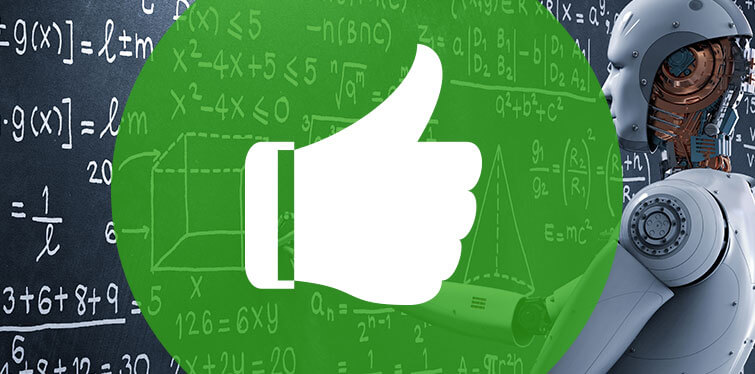
It is indisputable that all the processes in recruitment can be standardised by using AI, which could encourage a higher level of objectivity in the evaluation of candidates.
This evaluation is also made more objective by avoiding the typical evaluator errors, which cannot always be avoided, despite years of experience and their best efforts. This not only includes the so-called halo effect, whereby you make decisions without objectively basing the decision on a dominant feature, but instead based on other features of the person. By using logically thinking artificial intelligence, you can make evaluations that are fundamentally discrimination-free and gender-neutral, as well as unaffected by feelings.
Objectivity and transparency
Furthermore, clear evaluation criteria can be defined at the beginning of the application process, which also leads to more objective evaluation. For candidates, the objectivity and transparency offered by decisions made by artificial intelligence mean a higher level of perceived fairness, which in turn has a positive effect on the way the company is perceived.
Similarly advantageous for candidates is the flexibility of AI, which can adjust completely to the needs of the candidates, for example, by changing the gender of the applicant.
Another positive aspect is that the entire application process can be designed far more easily using artificial intelligence. Ideally, candidates would only have to create one central profile. This is then used by the company’s AI.
Advantages of artificial intelligence for companies
The application process is also made easier for the company through automatic pre-selection and decision-making. Artificial intelligence also offers the company economic advantages. Data can be found, merged and analysed in a matter of seconds, thereby presenting a more comprehensive image of the candidates than could be done only approximately by a recruiter in the same amount of time.
These aspects suggest that, in the future, even better evaluations could be made as to whether candidates would actually fit into the company or not, which means increased validity of the application process.
Furthermore, the advantages in terms of time are also enormous, because artificial intelligence can sieve through more documents and have more conversations per day than a person. In addition, AI doesn’t get tired or ill and can work flexibly at any time and also in any language. This allows the organisation and the recruiter to gain more time to concentrate on a select number of candidates.
Constant improvement
With each application, the artificial intelligence learns more and continuously self-improves. This knowledge stays in the company, whereas the personal experience of someone working in recruitment is difficult to pass on and can be lost completely if they leave the company.
Last but not least, artificial intelligence offers a significant advantage in terms of the hot topic of data protection through the anonymisation of data.
Two sides to each coin
This text only looks at the positive aspects of artificial intelligence in recruitment. In order to hear the critical voices too, you can find an article on the disadvantages here.